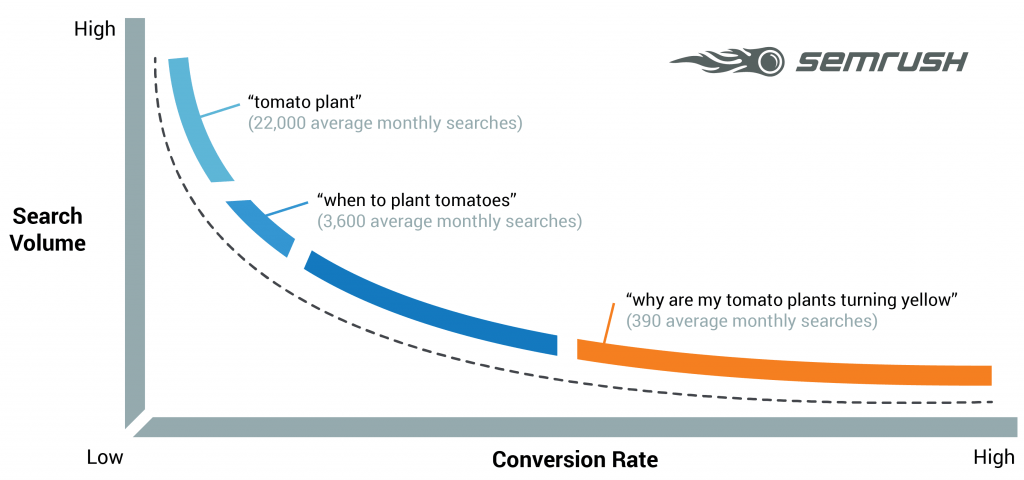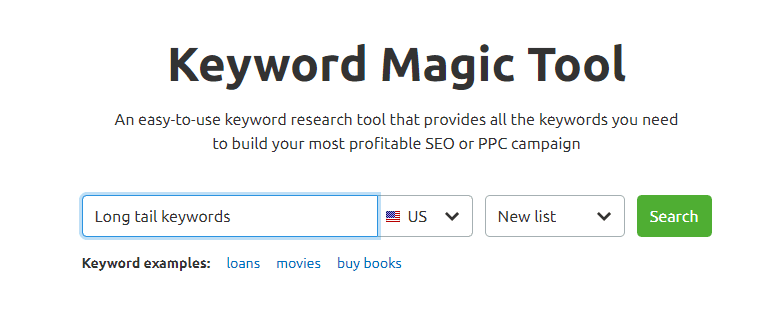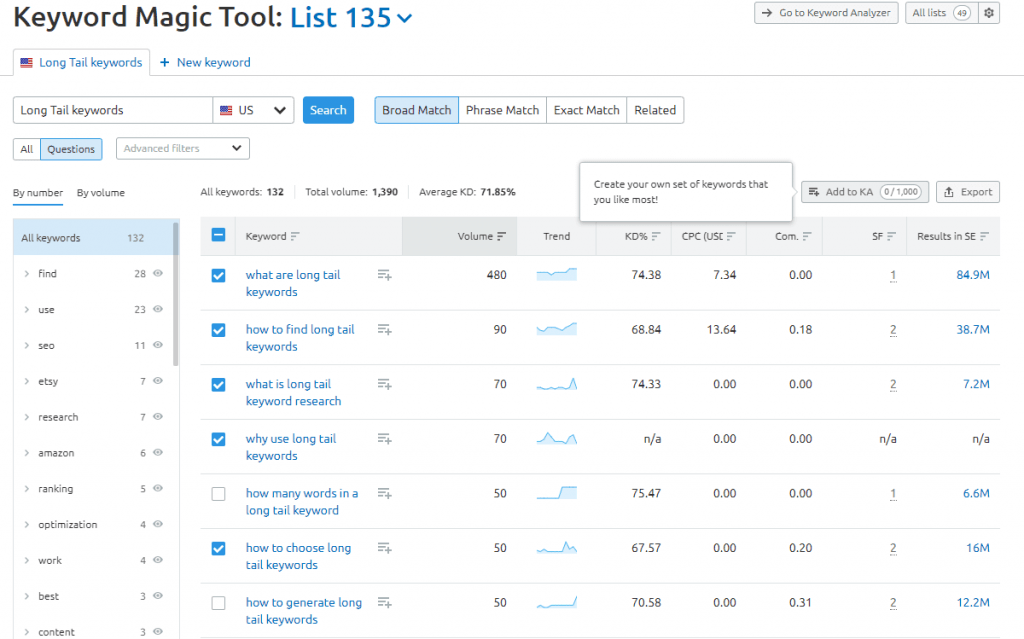New Feature Launch: Click Insights AI Overviews Gap Analysis
Google’s AI Overviews are changing the game when it comes to all things search. From…
Keywords are the lifeblood of Google, but they are also one of the most difficult parts to actually get right. Before you even worry about naturally injecting keywords into text, you need to choose the keywords. There are short tail keywords, long tail keywords, latent semantic keywords, intent targeting keywords, and so many more.
To keep things simple, we’re going to start with short tail and long tail keywords. The difference between long tail and short tail keywords in SEO is like night and day.
Short tail keywords are one or two words that define the topic. They are generic and broad and easy to add to any piece of content. They should be included in your pages, but they should rarely be the focus or the keywords that you invest in.
When it comes to keywords that bring in healthy conversionA conversion is a desirable result on a website that leads to an action such as completing an order, filling out a form, or simply clicking on a link. rates and save you money in the marketing department, your best friend is going to be the long tail keywords.
Long tail keywords are three or four words in length and descriptive. They are either specific to your location, to the problem that you solve, to the product, or to the service. There are many different kinds of long-tail keywords, but for simplicity’s sake, all you need to remember is that they are specific.
Those who use longtail keywords know what they need and are looking to sign up, buy, subscribe or hire. Long tail keywords, therefore, are better for conversion rates, and great for achieving your goals.
The best part? They also tend to be the cheapest keywords to invest in on PPC marketing tools like Google AdWords, as the competition is much lower. The only downside to long tail keywords is that not nearly as many people will click on your link, but the quality of those linksHyperlinks, also known as links, are the connection points on a webpage that take you to other webpages. will improve.
There are different types of long tail keywords. There are location-based long tail keywords, intent targeting long tail keywords, product long tail keywords, and many more. Knowing what your goal is for each page is going to be key.
Your product page will need to have the product’s name, the appeal of the product, and why it’s the best. Knowing the long tail keywords that your customers will use to find your product boosts your visibility and conversion.
 What Are Some Examples of Long Tail Keywords?
What Are Some Examples of Long Tail Keywords? Short tail keywords are things like “hotel,” “travel,” and even longer but generic keywords like “cars for sale.” Long tail keywords are defined by their length, yes, but more so their specificity.
Instead of “hotel,” you could invest in “boutique hotel in the Rockies.” Instead of “travel” you could find keywords relating to “unique donkey tours in the Grand Canyon.” Instead of “cars for sale,” try optimising, ranking, and investing in the actual make and model of the vehicle instead.
Why use long tail keywords? Long tail keywords attract a very specific type of customer, namely the one that is ready to actually put their money where their mouth is. When someone searches for a generic term, they aren’t really looking to buy; they’re looking for comparisons. They’re looking for buying guides, information and help.
Further down the line of the buying process, the search terms will become more specific and longer as a result. It is in this stage that the customer knows what they want and what they are looking for, which is the opportune time to finally make a sale.
All that is left is how to find long tail keywords, right? Though there are a few key steps after, the fact is, you won’t be able to move forward without having a list of great keywords.
There are many ways to find low competition long tail keywords that are perfect for your business. You can read reviews for products or businesses similar to yours to see how customers describe you, or better yet, you can use SEMrush’s KeywordKeywords are the words and phrases that potential customers might search for to find your business. Magic Tool.

This Keyword magic Tool goes through the whole process of how to find long tail keyword phrases with you, and makes it easy to search, sort and analyse keywords within its tool.
Start by searching a short tail keyword relating to your business, service, or page, and SEMrush will automatically find and group keywords. Select your favourite, compare them, and create a healthy list for each page you want to optimise or create.
[Keyword Magic Tool]
There are so many ways to make your efforts more effective. From creating unique pages for each location, or service and optimising them, to improving the formatting of your content and beyond. We go through all these topics in-depth in our eBook. Simply download and read the Position Zero eBook today.
Ever wondered why certain websites appear at the top of Google’s results page when you search for something? That’s no…
Selecting an SEO agency is an important decision for any business. Check out our guide on how to choose an SEO agency successfully!